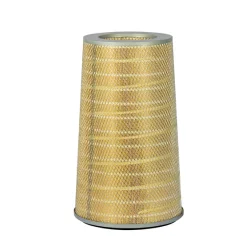Functions of Filter Elements
2024-05-30
Filter elements are crucial components in various filtration systems, and they serve several essential functions across different applications. Here are the primary functions of filter elements:
1. Removing Particulate Matter
- Air Filters: Remove dust, pollen, and other airborne particles.
- Oil Filters: Trap metal particles, dirt, and other contaminants from lubricating oil.
- Water Filters: Eliminate sediment, sand, and other impurities from water.
2. Improving System Efficiency
- By removing contaminants, filter elements help maintain the efficiency of engines, HVAC systems, hydraulic systems, and other machinery. Clean filters ensure that these systems operate smoothly without undue stress or wear.
3. Protecting Equipment
- Filters prevent contaminants from reaching sensitive components, thereby reducing wear and tear and extending the lifespan of the equipment. This is particularly important in engines, where particulate matter can cause significant damage.
4. Ensuring Product Quality
- In industries like pharmaceuticals, food and beverage, and electronics, filters are used to maintain high levels of cleanliness and purity in products. For example, water filters ensure the quality and safety of drinking water.
5. Maintaining Fluid Purity
- Fuel Filters: Keep fuel free from particles and water that can cause engine problems.
- Hydraulic Filters: Maintain the cleanliness of hydraulic fluids, which is critical for the reliable operation of hydraulic systems.
6. Enhancing Air Quality
- In HVAC systems, air filters improve indoor air quality by removing contaminants like dust, mold spores, and allergens. This is important for health and comfort in residential, commercial, and industrial environments.
7. Reducing Environmental Impact
- By trapping harmful particles and preventing them from being released into the environment, filters contribute to pollution control and compliance with environmental regulations.
8. Extending Maintenance Intervals
- Effective filtration can prolong the intervals between maintenance tasks, such as oil changes or air filter replacements. This reduces downtime and maintenance costs.
9. Protecting Human Health
- In applications like respiratory masks or medical devices, filters are essential for protecting users from harmful pathogens, dust, and other airborne contaminants.
10. Specialized Filtration
- Chemical Filters: Remove specific chemicals or gases from the air or fluid streams, such as carbon filters removing chlorine from water.
- Biological Filters: Used in aquariums or wastewater treatment to remove biological contaminants.
Types of Filter Elements:
- Mechanical Filters: Use physical barriers (e.g., meshes, membranes) to remove particles.
- Adsorptive Filters: Use materials like activated carbon to adsorb contaminants.
- Electrostatic Filters: Use static charge to attract and hold particles.
- Biological Filters: Use biological processes to remove contaminants, often seen in water treatment.
Each type of filter element is designed for specific applications and requirements, ensuring optimal performance and protection for the respective systems they are integrated into.



